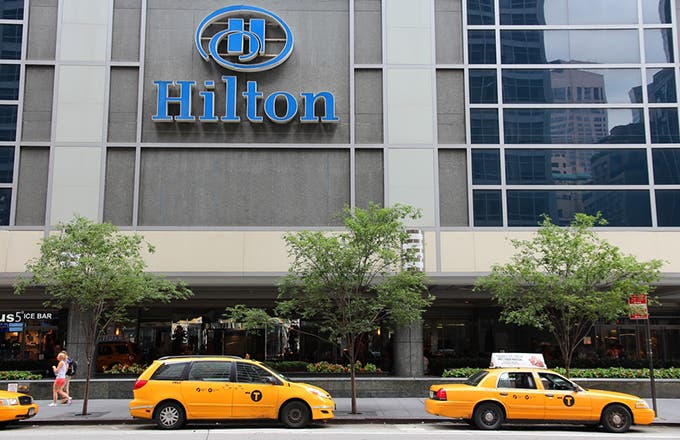Post by The Big Daddy C-Master on Aug 4, 2015 5:16:54 GMT -5

Becoming and remaining private allows a larger degree of freedom for company management to embark on long-term, innovative, and high-risk, high-return ventures. A private company is not bound by the pressures of quarterly results. Another reason for going private could be a buyout by a private company or a venture capitalist firm. Going private results in the delisting of company shares from a stock exchange. In return, the shareholders often get cash or stocks in a defined proportion. (See related: Why Public Companies Go Private.)
We look at 10 popular public companies that went private in alphabetical order.
1. Alliance Boots plc: The UK-based, LSE-listed healthcare and pharmacy chain holds the record of biggest buyout in Europe worth $22.2 billion. It was bought by Kohlberg Kravis Roberts & Co. (KKR), along with Italian billionaire Stefano Pessina in 2007.
2. Dell Computers: The most famous delisting in recent times was of Dell Computers, whose buyout was completed in October 2013. The company’s CEO, Michael Dell, and Silver Lake Partners took the company private for $24.4 billion. Dell is among the world leaders for manufacturing PC, mobile, tablets and other hardware accessories.
3. Equity Office Properties: Equity Office Properties Trust was the largest owner of the office and commercial properties across the U.S. until it was bought out. The buyout for Equity Office Properties saw multiple rounds of high-stake bidding with fierce competition from top-notch bidders. It was finally acquired by the Blackstone Group (BX) for $39 billion in February 2007.
4. Freescale Semiconductor, Inc.: Freescale Semiconductor designs and manufactures embedded semiconductors for various industrial markets. It was acquired in December 2006 by a private equity consortium led by the Blackstone Group and The Carlyle Group for $17.6 billion.
5. H.J. Heinz: The 146-year old world-leader of the packaged food industry mostly famous for its tomato ketchup, H.J. Heinz was delisted from NYSE in June 2013. It was acquired for more than $28 billion by an investment consortium comprising of Berkshire Hathaway (BRK-A) and 3G Capital.
6. Hilton Worldwide Holdings: Hilton is a leading global hospitality and hotel chain having more than 3,000 properties in more than 76 countries. In October 2007, Blackstone Group bought the company in a leveraged buyout fund for $26 billion, and subsequently delisted from the NYSE.
7. Jo-Ann Stores: The company got delisted in March 2011, following a buyout by Leonard Green & Partner, L.P., a private equity firm, valued at $1.6 billion. Jo-Ann is one of the largest specialty fabric and craft retailers, with more than 850 stores across 49 U.S. states.
8. Kinder Morgan, Inc.: Kinder Morgan is the second-largest oil-producer of Texas, which also operates in distribution, transportation and storage of energy. The company went private in May 2007, following a buyout from American International Group Inc. (AIG), The Carlyle Group, Goldman Sachs Capital Partners, and Riverstone Holdings LLC for $21.6 billion.
9. Reader’s Digest Association, Inc.: The publisher of the world-renowned general-interest magazine, the Reader’s Digest, was acquired by Ripplewood Holdings LLC in March 2007 for $2.62 billion. It was subsequently delisted from NYSE as a result of this private acquisition. Apart from the Reader’s Digest magazine, which has 50 editions and translations in 20 languages, the group also operates 60 different websites.
10. TIBCO Software, Inc.: The business intelligence software company went private in late 2014, when it was acquired by Vista Equity Partners for $4.3 billion. One month before, TIBCO CEO, Vivek Ranadive, reportedly explained that privatization was a better option to address some of their problems, saying, “Answering to the Street is too much of a hassle.”
The Bottom Line
Although privatization brings its own benefits, it can also lead to increased pressure from the new private owners. Most deals to take public companies private are through investment conglomerates, which may set strict business objectives with tight timelines for company management. It may also be a red flag for employees in cases of mergers or takeovers. (See
Read more: www.investopedia.com/articles/active-trading/073015/10-most-famous-public-companies-went-private.asp#ixzz3hq93lwfM
Follow us: @investopedia on Twitter


